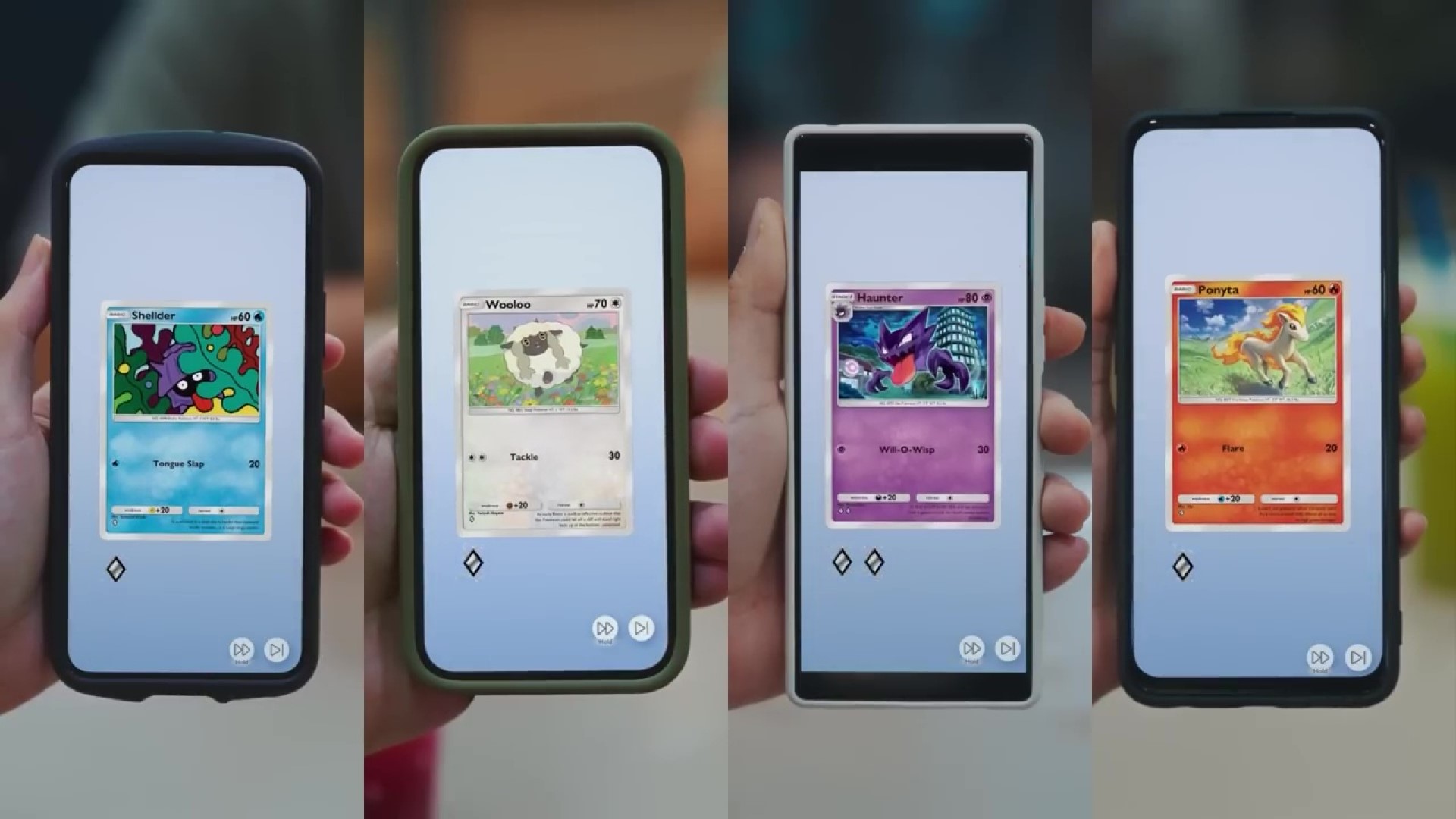
Pokemon Trading Card Game Pocket (god, they really do come up with some long names for these things, don't they) is coming at some point this year. But while a fascinating amount of time in the announcement was devoted to the sheer tactile act of tearing packets open, there's also an actual game in there as well, a seemingly sleek and snappy interpretation of the classic schoolyard argument-generating experience.
But both of those elements can be found in various games already, whether they fly under the Pokemon flag or not. There's actually something else in the game that threatens to be far more revolutionary, something so obvious it's in the actual title: trading.
Trade, marked
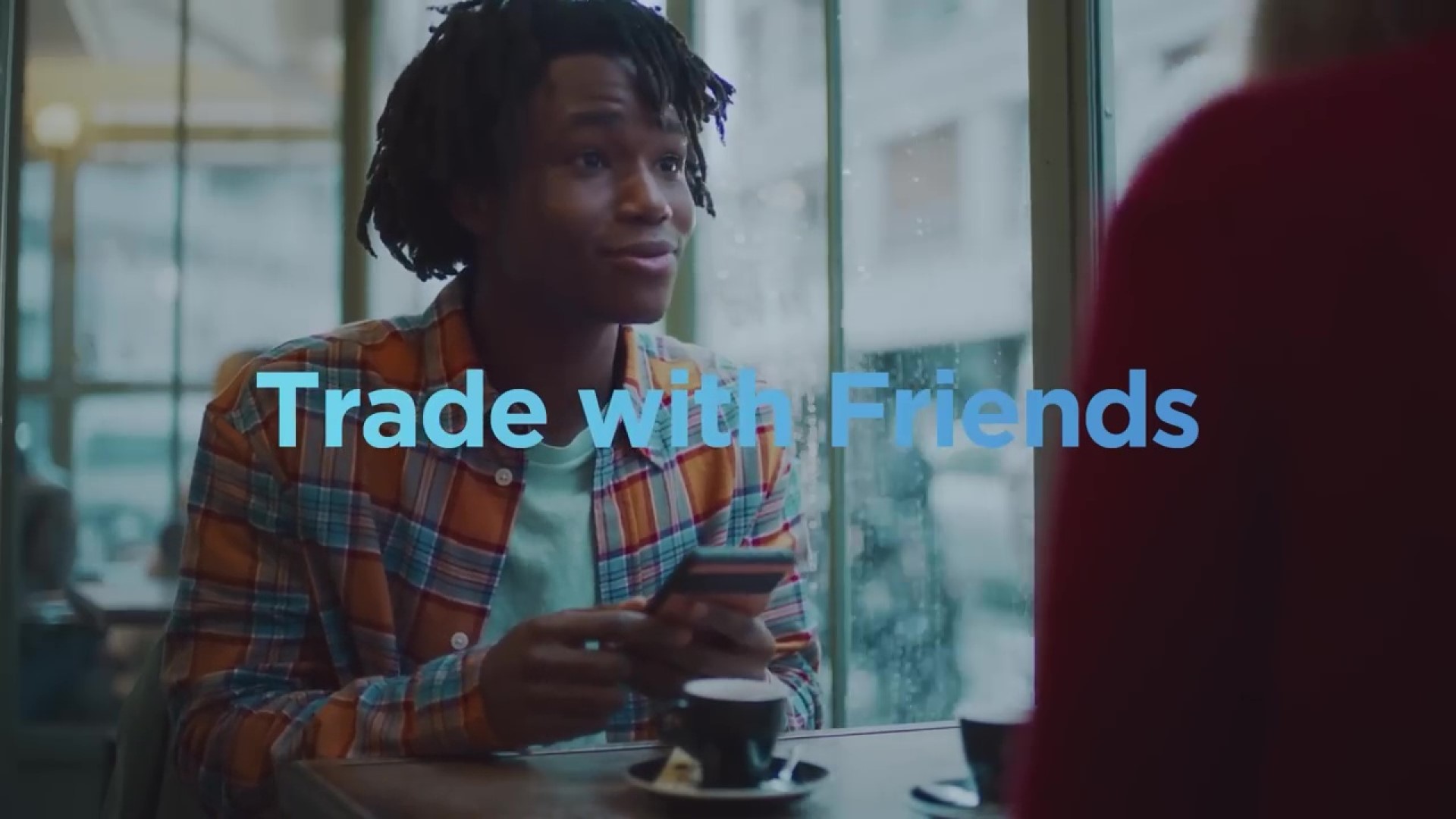
Sounds absurd, I know – Pokemon is part of the Trading Card Game genre – but it's surprisingly rare for video games, with tons of titles that attempt to recreate the feel of card battlers, but completely omit this key part of the experience. Hearthstone, Legends of Runeterra, Magic The Gathering: Arena, Yu-Gi-Oh: Master Duel and Gwent won't permit trades in any form.
Player-to-player trading has been absent from most card battlers for so long that nobody even notices it's missing anymore.
Even Marvel Snap - the success that many think prompted Pokemon TCG Pocket's apparently leaner gameplay design - won't let you exchange your Squirrel Girls for a couple of Shockers. Pokemon TCG Online, back in 2011, did allow trades… but Pokemon TCG Live, the less-popular service that supplanted it, did not.
The closest I could find to anybody doing it in the mainstream recently was Artifact (I know, I know, I'm stretching the word "mainstream" here) with a slightly bastardised version of the concept handled via Steam's marketplace, and even then it's still an online auction house, not just doing fun swaps with your pals and saying "well I've got this, what've you got?", like exchanging the best parts of your packed lunches at school.
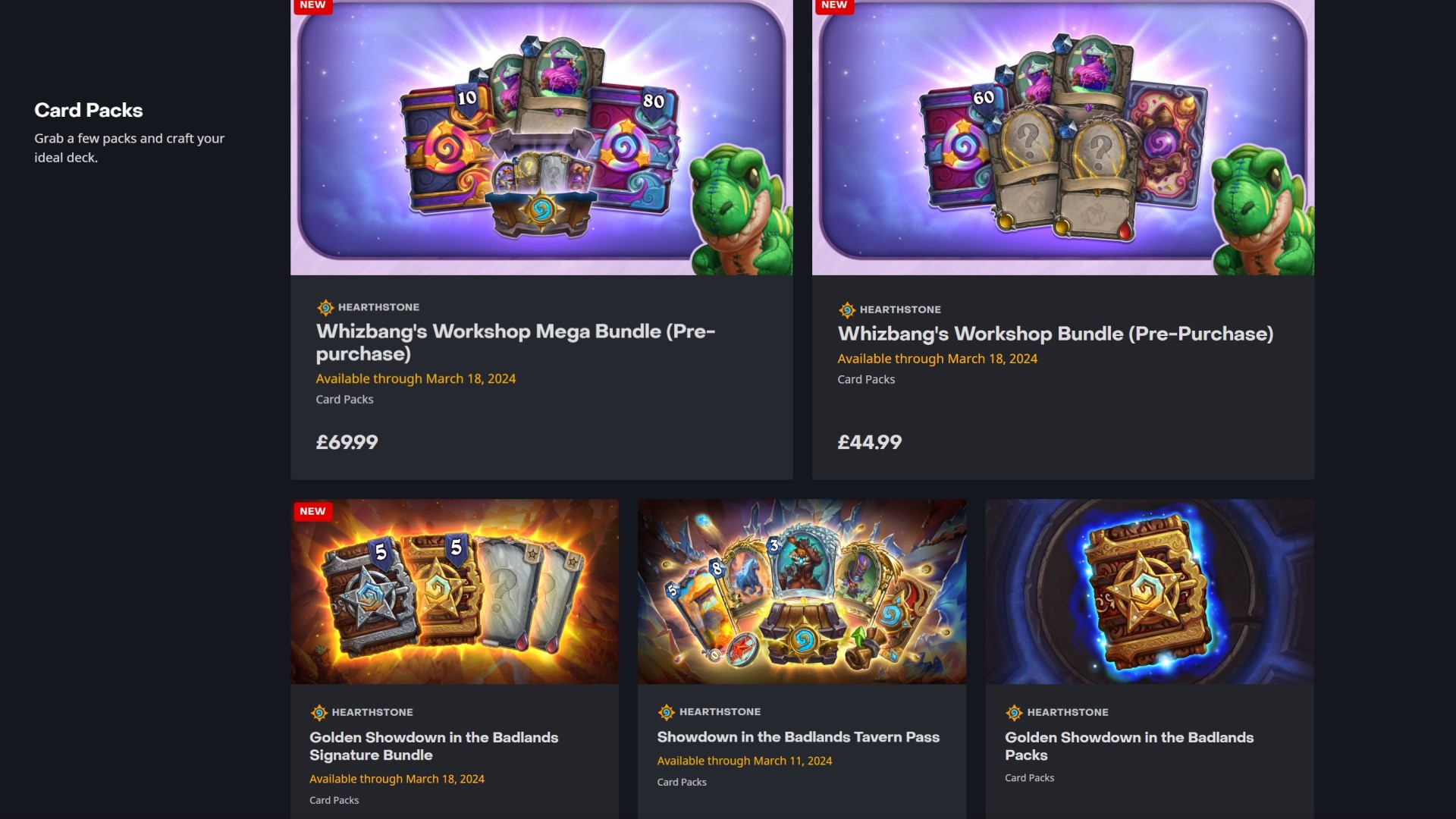
Speaking of marketplaces, the reason that none of these games have trading as an option is fairly obvious: microtransactions. If you're playing Hearthstone and know that the new meta is dominated by gurgling Murlocs, you'd normally have no option but to buy a dozen random packs and hope you draw what you need, putting a quite a lot of money into ActiBlizz's pocket along the way (and even then you're not guaranteed that you'll get the cards you want, potentially prompting further purchases).
But if trading were allowed, you could just go find a friend with extra fishfolk and work out a mutually beneficial deal where you fork over a legendary you don't need - and money need never change hands. Good for players, not so good for ActiBlizz. Consequently, player-to-player trading has been absent from most card battlers for so long that nobody even notices it's missing anymore, despite being a foundational part of the experience they're supposedly adapting. Now Pokemon TCG Pocket is threatening to buck the trend - and I'm going slightly crazy trying to work out what the catch will be.
Cards against economy
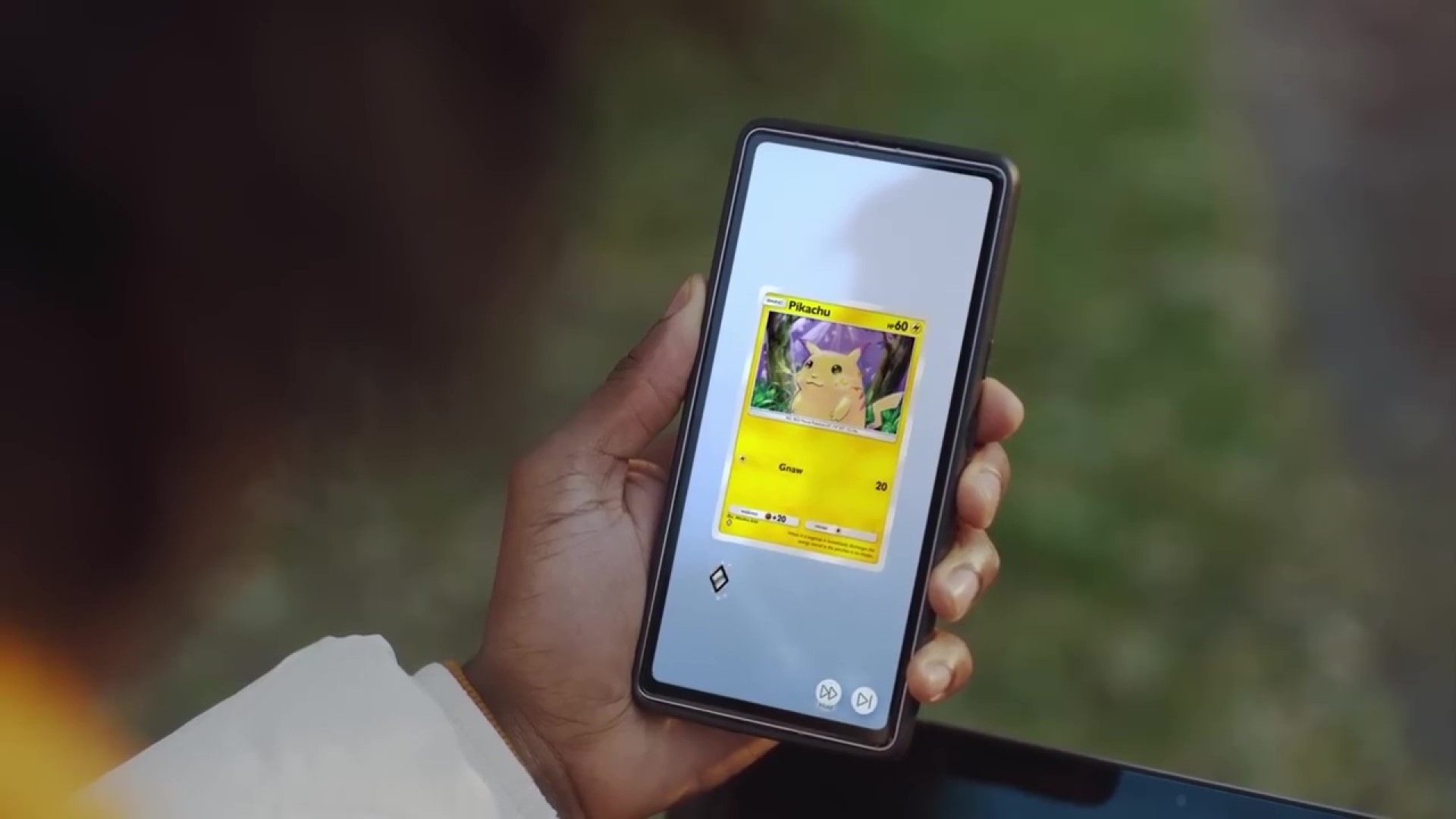
Pokemon hasn't said how its trading will work yet – right now there's little more than a couple of seconds in an announcement trailer simply acknowledging it – so assuming this marketplace-breaking feature is exactly what it sounds like, I gotta ask… what's the sting in the tail?
Because there has to be one, right? Pokemon TCG Pocket itself isn't going to cost money - the announcement page claims it's "Free-to-Start, optional in-game purchases available", so it won't be super old-school by just being… you know, a one-and-done paid game. Two card packs will apparently be given to players per day at no cost, but nobody doubts that further packs will be available at not no cost, so to speak.
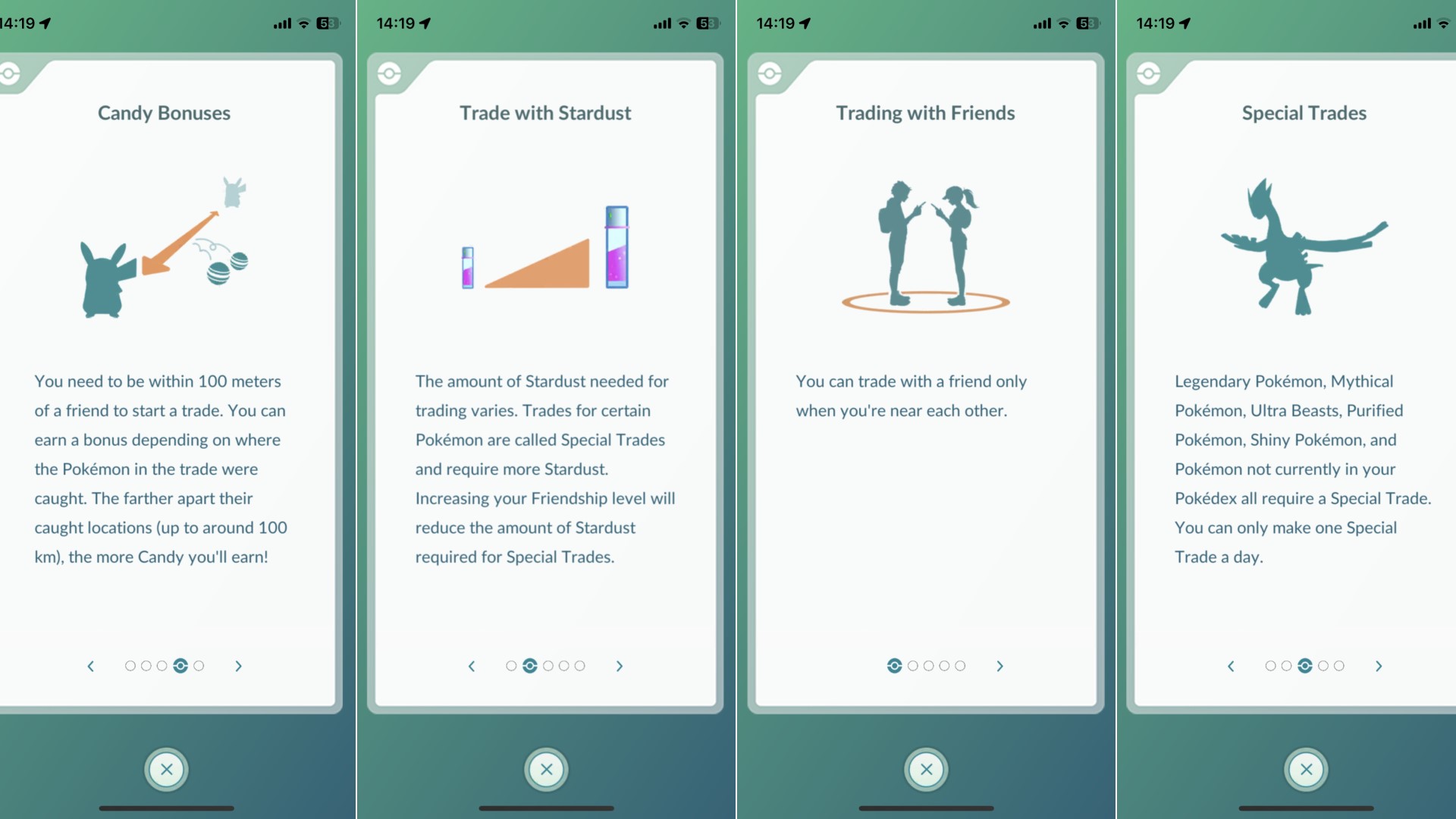
I can think of a few ways in which trading could come wrapped in chains of gold. Simply paying for the privilege to swap cards feels like a blunt but plausible option - that each trade has a little import tax attached, or maybe locking more than a couple of trades per week behind a paywall. The trailer shows players swapping cards both locally and remotely - perhaps trying to do so at a distance will come with its own expenses. Checking Pokemon Go for the first time in years, I see that it's currently sporting an almost nauseatingly complex trading system that incorporates all these elements and more. Or perhaps the idea for Pokemon TCG Pocket will simply be to fiddle with the rarities and drop rates in the random packs so that there's not enough rare cards around to really compromise the economy - after all, who'd trade away their only shiny Charizard if there's no real chance they'd get another one?
It's one of those features that threatens to make or break the game purely on its own - which would explain why the announcement adds that "The trading feature shown may not be available at launch", as if even more time might be needed to work out just how they're going to implement this idea without collapsing their whole business model. I urge them to err on the side of player-friendly behaviour though, if only for their own sake - after all, recent live service models have shown you don't get anywhere by fighting the wishes of your audience.
See everything announced at the Pokemon Presents here, or check out the authors other feature on the bewildering question: why can't the Pokemon franchise remember its best ideas?







